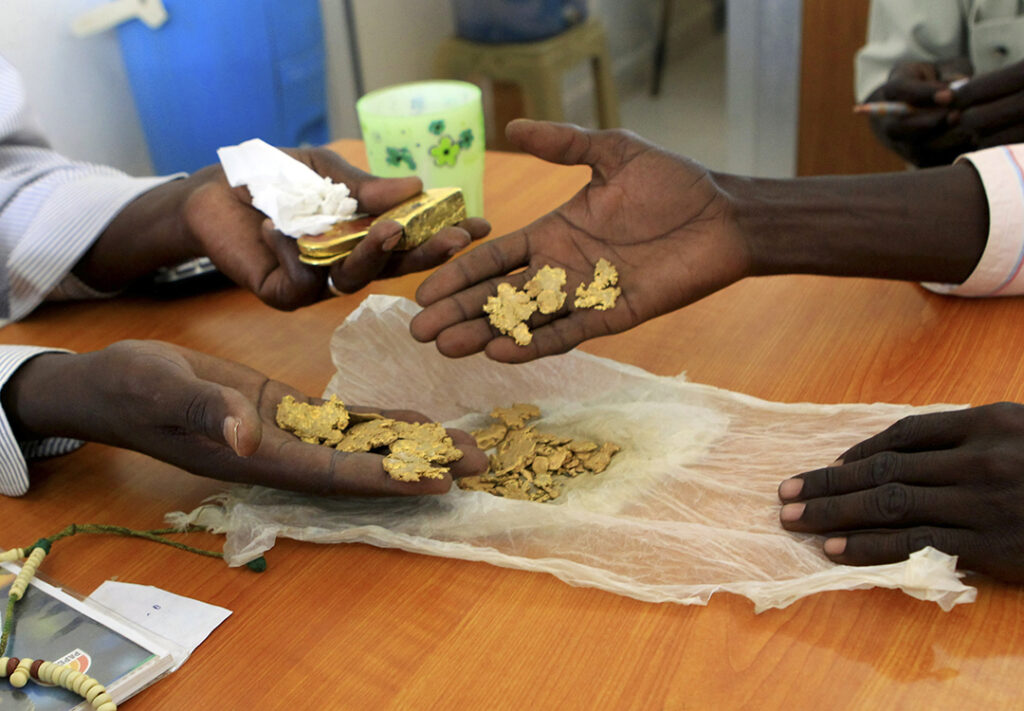ADF STAFF
Soon after Russia’s invasion of Ukraine, a Russian cargo plane idled on a runway in Khartoum, Sudan.
According to CNN, the plane’s manifest claimed it was loaded with cookies. When inspectors boarded the plane to confirm its contents, they found some cookies. But beneath the cookies, they also found one ton of smuggled gold bound for Russia to help finance its war in Ukraine.
Russia’s mining and smuggling operation in Sudan is tied to the Wagner Group, mercenaries that have become Russian President Vladimir Putin’s tool for exerting anti-democratic influences on the continent.
Since the invasion of Ukraine, Sudanese gold also has helped Putin get around the international sanctions that have cut off access to about half of Russia’s financial reserves.
The mining that finances the invasion has had the added effect of crippling Sudan’s food supply as the invasion shut down grain exports from Ukraine and Russia.
“Moscow is getting what it wants. The coup leaders are getting what they want. The real losers are the citizens of Sudan,” Joseph Siegle, director of research at the Africa Center for Strategic Studies, told ADF in an interview.
Wagner and its affiliates, such as the mining company M Invest, operate in the Central Africa Republic (CAR), Libya, Mali and Sudan. In each country, Wagner forces help authoritarian leaders stay in power in exchange for the rights to mine each country’s mineral wealth.
“There’s a trail of instability everywhere Russia goes in Africa,” Siegle said. “Authoritarian governments are cutting deals with Moscow at the expense of their citizens, at the expense of their sovereignty, and at the expense of the stability in these places.”
In Sudan, that means backing the military junta whose coup in October 2021 derailed the country’s transition to civilian rule. Wagner continues to advise the government led by Gen. Abdel Fattah al-Burhan, even as citizens demand elections and democratic rule.
Wagner gained a foothold in Sudan in 2017 when then-ruler Omar al-Bashir signed a mining agreement with M Invest, which now operates through a Sudanese company called al-Solag. Al Solag buys gold from artisanal producers near its processing facility in northeast Sudan.
After al-Bashir was overthrown in 2019, Wagner shifted its attention to al-Burhan and the country’s military, which controls vast amounts of Sudan’s economy, including mining.
Wagner’s principal relationship, however, has been with al-Burhan’s deputy and rival Mohamed Hamdan Dagalo, also known as Hemedti, and his Rapid Support Forces (RSF), who are accused of human rights abuses in the Darfur region and elsewhere.
“Hemedti, in many ways, is their go-to guy,” Siegle said. Hemedti benefits from Wagner disinformation efforts targeting al-Burhan. Like other well-connected people in Sudan, Hemedti gets a piece of the smuggling action, Siegle said.
“It’s not on the books. There’s no tax revenue. But that’s not to say powerful people aren’t benefiting, which is why no one stops it,” Siegle said.
Al-Burhan has even issued a decree that no Russian planes can be inspected before leaving the country.
Last year, Sudan’s Finance Minister Gibril Ibrahim estimated that about 20% of the country’s gold passed through official channels, which reported about 100 metric tons produced in 2019. Of that, 21.7 metric tons were registered as exported, leaving more than $4 billion in gold unreported.
Since much of Sudan’s international support ended after the coup, Ibrahim has said gold exports will play a larger role in generating income for the country. He has pledged to crack down on smuggling.
Meanwhile, in the gold mining areas of western Sudan, the Darfur Bar Association (DBA) has accused the Wagner Group and RSF of attacking and killing artisanal gold miners in the Um Dafuq region near the border with the CAR.
“Wagner is operating and training militias, and they are helping them loot our gold,” Sudanese democracy activist Nasr Eldin Safiyah told the website Coda Story.
The CAR, where the Wagner Group is deeply rooted in the government of President Faustin-Archange Touadéra, serves as an alternative route for smuggling gold out of Sudan.
Although the Wagner Group pitches itself as a source of military training and security, the facts on the ground present a very different picture, Siegle said: a picture of Russia helping corrupt leaders hang onto power against the wishes of their citizens.
“The reality is the Russians aren’t offering much economically. They’re not investing; they’re not addressing the demands of the protesters,” Siegle said. “It’s a very short-term strategy.”
Note: This is the first of a two-part series on Russian mercenaries looting gold in African countries.

